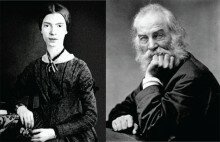Introduction to Memories of the Unknown
Translator James Brockway on the ever-growing international acclaim for Rutger Kopland's poetry, and its universal appeal: “A Kopland poem is instantly recognizable as a Kopland poem. It is international, Dutch and English at the same time”.
When, in 1982, I made the acquaintance of Rutger Kopland’s poetry, the poet had been publishing collections since 1966 and already enjoyed a considerable reputation in Holland. His seventh collection had just appeared and his others had gone into several impressions. He had become that rare creature, a popular serious poet. I could not have foreseen that his reputation would grow and grow. In 1998 he was awarded what had been the Dutch State Prize for Literature, the P. C. Hooft Prize, and this was not the only distinction to have fallen his way. Prose works of his appeared in various forms, including collections of his essays on poetry. At the same time, the poet is well-known as Rutger H. van den Hoofdakker, the Emeritus Professor of Psychiatry at Groningen University, with further titles to his name in that field.
Nor did I foresee that the acceptance of translations of two modest poems from his early work by the poet Michael Blackburn, then poetry editor of Jon Silkin’s admired poetry quarterly, Stand, would lead to further contributions to several other British poetry magazines, notably Alan Ross’s London Magazine, Patricia Oxley’s Acumen and Michael Mackmin’s The Rialto. Something of his appeal was also reflected by acceptance in magazines of a more general nature, such as the Spectator and the Listener.
It was Michael Blackburn who was the first to produce a Kopland collection in Britain. This was in 1987, when the pamphlet The Prospect and the River, was published by the pioneering Jackson’s Arm, the poetry division of Blackburn’s Sunk Island Publishing Press. This edition presented my translations of a number of the rather longer Kopland poems – a long poem in his case rarely exceeding, or even reaching, much more than thirty lines.
Blackburn’s pioneering gesture was followed in 1991 by Stephen Stuart-Smith at Enitharmon, which published a full-length selection of translations from the first nine of the Dutch poet’s collections. The critical reception was surprisingly warm for a poet from a language area in which little literary interest had ever been shown in Great Britain in the world outside the universities, and even there, interest was of a limited extent, largely excluding the contemporary, however active and alive this was in Holland itself.
In 1995, I reprinted ten of the Kopland poems from the Enitharmon edition (one was new) in an anthology of translations from the poetry of eight twentieth century Dutch poets, ranging from the 1920s to the 1990s, entitled Singers Behind Glass, a further enterprise of Blackburn and his Jackson’s Arm publishing division. Both A World Beyond Myself and Singers Behind Glass were very positively reviewed in Britain, where Kopland was hailed as an exceptionally gifted poet, and such a reaction was certainly merited. Then, in 1996, Vintage Books of New York used five Koplands in its anthology, The Vintage Book of Contemporary World Poetry, making Kopland at last “a world poet”. Outside Britain, Kopland’s work has been published in magazines and anthologies in many countries and has been translated into various languages. A collection of his work was published in the USA as early as 1977, in a translation by Ria Leigh-Loohuizen: An Empty Place to Stay and other selected poems. Selections have also appeared in France, Israel and Poland.
In this latest selection the emphasis has been laid on the more recent work, from the poet’s tenth collection in Holland, Patient Instrument (1993), and the eleventh, Until It Lets Us Go (1997). A sprinkling of poems from former collections has been added to give the English reader some idea of the earlier, often rather more anecdotal, poetry and its parlando tone that has made Kopland so popular in Holland, where new editions go into numerous impressions within a few years. In 1999, his publisher issued a fine paper Collected Edition on the occasion of the poet’s 65th birthday.
Translating Kopland’s poetry into English has become a habit for me and is not as easy or as difficult as it may seem, provided one remembers to pay close attention to cadence and never to attempt to stray off on one’s own. It is a poetry utterly devoid of rhetoric, which poses questions without supplying answers, as Kopland believes poetry must do. Unless, of course, the reader discovers those answers in the course of his reading. It is a poetry that has always been written in a simple language that is not simple at all, but often leaves one guessing. A Kopland poem is instantly recognizable as a Kopland poem. It is international, Dutch and English at the same time, and even when anecdotal, universal in its themes. Gradually, as the work has progressed over the years, a bond has grown between the two of us which has become a source of spiritual riches and which has enriched my life.
Introduction to Memories of the Unknown. Harvill Press, London 2001.







